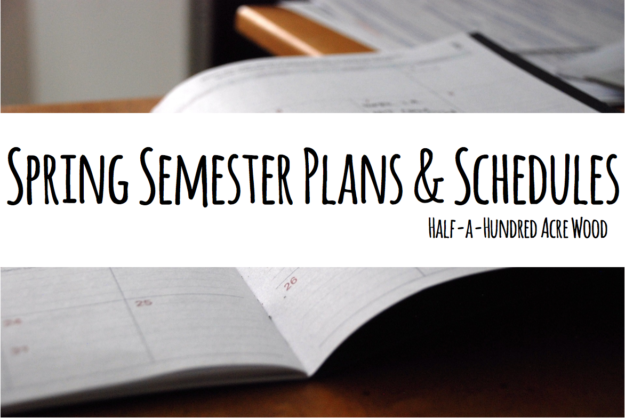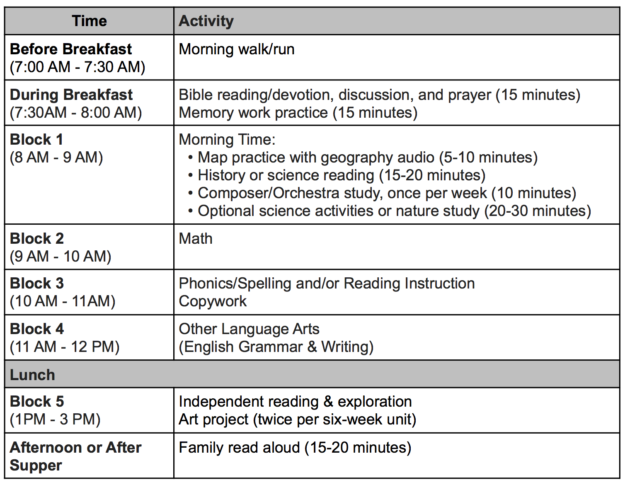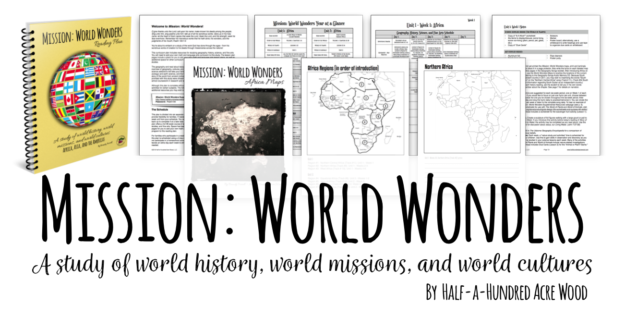
So here we are, the third leg of the school year. When running a race, the third leg is the hardest. Enthusiasm and motivation have waned, sometimes we’ve fallen behind where we want to be, we’re worn out and exhausted, and the end is not yet in sight. It’s so easy to give up in the third lap.
Same goes with homeschooling.
Through experience, I’ve come to approach this time of year with caution. After all, there’s nothing like the January and February winter months for disrupting the ideal. This time of year (or any time of year), it’s okay to rethink goals. It’s okay to set aside curriculum. It’s okay to slow the pace. It’s okay to take time to enjoy family. It’s not just okay, it’s necessary.
Even though plan doesn’t equal reality, without a plan, we lack vision or direction or goals. So… I plan and then pray that God will
Teach us to number our days, that we may gain a heart of wisdom. Psalm 90:12, NIV
Part of numbering our days aright is planning well. Part of numbering our days aright is letting go of those plans when God has something else in store for our family. And we embrace the fact that homeschooling is about relationships, not curriculum. Love covers a multitude of sins.
With that, let’s get started, shall we?
Our Read Aloud Selections for Second Semester:
We’ll start with my favorite thing: sharing stories as a family! We usually read a book together in the evenings the hour before we go to bed. (Notice I say “usually.” Sometimes we don’t get around to our read aloud time, which is okay.) These read-alouds are part of our Mission: World Wonders study.
Ida Scudder: Healing Bodies, Touching Hearts. Originally refusing to ever become a missionary doctor, Ida Scudder submitted to God’s call to medicine after she witnessed the death of Indian women because of their religious beliefs. We’re actually ahead of schedule on our original read aloud selections because we ended up listening to the adventures of Ida Scudder over Christmas break. The boys marveled at how God worked through her life despite her initial refusal to surrender to His call! Such a fantastic book!
Hudson Taylor: Deep in the Heart of China. Pioneering missionary Hudson Taylor overcame persecution, hardship, and personal loss to bring the truth of God’s love to China.
[If you would prefer a book on Africa to open up this semester, some of our favorite books about Africa include David Livingstone: Africa’s Trailblazer, A Long Walk to Water, Mary Slessor: Forward into Calabar, and Charles Mulli: We Are Family.]
Cameron Townsend: Good News in Every Language. Responding to a Cakchiquel man’s probing question “if your God is so great, why can’t he speak my language?” Cameron Townsend started Wycliffe Bible Translators with the dream of making the Gospel available in every language. Fascinating perspective on language – especially as we compare his insights to the study of learning a challenging language like Latin! Latin’s really not so tough, after all!
Wilfred Grenfell: Fisher of Men. An English doctor, Wilfred Grenfell left his ministry among the fishermen of the North Sea to work among the poor fishing communities along the Labrador coast in Newfoundland. Grenfell founded hospitals, schools, orphanages, and fishermen co-ops as he shared the hope of the gospel with those who often fell into a life of despair.
Clarence Jones: Mr. Radio. Despite his lack of interest in religion, Clarence Jones ended up playing the trombone for Chicago’s Moody Church where he came to know Christ. In Chicago, Jones pioneered Christian radio broadcasts, later founding Radio HCJB and the World Radio Missionary Fellowship in Ecuador, which broadcasted across the world during the dark times of World War II.
Rachel Saint: A Star in the Jungle. Another inspiring missionary biography (which ties into our timeline event Jim & Elisabeth Elliot) where you can see the amazing power of forgiveness and love – and how it radically transformed the lives of the ruthless Waoroni tribe in Ecuador. “It has been said that possibly no single event of the twentieth century awakened more hearts to God’s call to serve in missions.”
Schedules
We usually read our read-alouds in the evenings after supper. We also have a Morning Time consisting of short readings and/or activities we’d like to do to jumpstart our school day. (Our Morning Time is Mission: World Wonders.) Our schedule looks a bit like this on an ideal day:

But rest assured it looks more orderly on paper than it does in real life! Usually I’m juggling three different children with three different subjects while the fourth (preschooler) is unrelentingly asking me to do his “school work.” If you ever stepped into our home during “school time,” you’d be amused (or horrified?) at what appears to be chaos. But at the end of the day, each child has {usually} completed all of his daily assignments. I think what helps is that each student also knows what the schedule is supposed to be, and they all work fairly well off of that checklist. In a more simplistic format, here’s a rundown of what our core, bare-bones schedule sort of looks like (but Block 1 consists of our Mission World Wonders Morning Time instead of just Memory work and maps).

Usually, one child is working on math while I’m working with another on language arts. If I’m working with a brother, they know to work through their assignments and simply highlight/circle anything with which they need my help. That’s why a checklist/schedule is so helpful for all of us. I have one printed for each one of them!
Morning Time – Mission World Wonders
Our morning time consists of Bible/devotion, hymn study, geography, science, history, composer study, and art projects. (See the Morning Time section in the first schedule above.) Not every morning includes all of these subjects (of course) but they’re scheduled/paced out in a simple format in the Mission: World Wonders Reading Plan.

Morning time usually takes us about 30-45 minutes to complete, unless an art project or science experiment is scheduled. I provided some photos of science and art projects we completed last semester on our Semester in Review post! The general plan for the remainder of the year is…
Bible. We begin our days with reading the Bible each morning and discussing as a family. This year, our Bible readings and devotions are related to world missions.
Hymn Study. We’re studying hymns that are correlated with the missionary, region, and/or science concept using the book Then Sings My Soul. You can find the hymns we’re studying on our fine arts loop schedule.
Science. This semester, we’ll be using A Child’s Geography: Explore His Earth to study earth science. This Christ-centered, narration-style approach to earth science explores the atmosphere, continents and oceans, seasons and weather patterns, earth’s structure, plate tectonics, earthquakes and volcanoes, and globe markings.
Geography. We’ll finish up Asia and head into a study of the Americas (Central America, South America, and Canada) as we memorize all of the countries of each region. Resources include Window on the World, the Usborne Geography Encyclopedia, Children’s Atlas of God’s World, and Geography Songs.
Art & Music. We’ll continue with our missions-correlated art projects using art study and instructions from The Usborne Art Treasury. We’ll also continue with our study of composers and orchestra using A Child’s Introduction to the Orchestra. (Formerly Story of the Orchestra). This semester, we’ll be introducing Mozart and Beethoven while also learning about Brass and Percussion, and we’ll review Vivaldi, Bach, and Haydn along with the other sections of the orchestra that we covered last semester.
History. We finished Story of the World Volume 1 last semester, so we’ll be continuing with Story of the World Volume 2 this semester.
Can you believe all of that usually takes less than 40 minutes daily? The only exception is when we have an occasional art project, nature walk, or one of the longer science activities, but we usually postpone those to the afternoon. You can download a sample of Mission World Wonders here and read reviews on our Facebook page. You can also search for the tag #missionworldwonders on Instagram to see a few snippets from other families who are using it.
Mid-Year Curriculum Update
In our mid-year reality check, I also mentioned how curricular adjustments were made over the course of last semester. Here’s what we’re using this semester beyond Mission: World Wonders.
Preschooler
Script-n-Scribe Roller Coaster Writer (large-motor activities leading into fine motor writing skills as he shows signs of readiness) and All About Reading Level 1. All About Learning Press just released a new color version of their All About Reading program! Click here for more information about that, or you can read about why All About Reading is our favorite reading curriculum! Aside from this, he’s coloring, drawing, and listening to us read bunches and bunches of books!
4th Grader
- Math: Math Lessons for a Living Education Level 4 from Master Books, with occasional supplemental reinforcement from Saxon 5/4.
- Spelling: Spell to Write and Read (SWR) with some lists and dictation exercises from All About Spelling. I’ve been working through SWR spelling lists with our 4th and 7th grader together. (Our 7th grader struggles with spelling, so we continue to work on it.) For working with multiple students, SWR is efficient, but I don’t necessarily recommend this program for new parents unless you can invest the time and cost into attending SWR Training. It’s a good program but has a huge learning curve and isn’t for everyone! I sometimes find that I have to use reinforcements from All About Spelling, so that’s why we’ve listed that we’re using a combination of the two this semester. If you’re needing a spelling program, you might want to check out All About Spelling. (In fact, after our latest mid-year spelling assessment, I’m not satisfied at all with our progress using SWR.)
- Penmanship & Poetry: Script-n-Scribe Truth Traveler, which includes artist/art study, poetry, and a gentle introduction/review of English grammar concepts.
- Latin: Getting Started with Latin. We needed something basic and easy to juggle for now, so I pulled this handy resource off our shelves.
- Writing: IEW Ancient History-Based Writing Lessons.
- English Grammar: Fix-It Grammar Level 1. My older children didn’t have enough structured practice with editing and checking mechanics. IEW’s Fix-It Grammar program includes short simple lessons that reinforce application of parts of speech, usage, punctuation, capitalization, and more. (It’s our new favorite find for this year!) We’ll also be practicing sentence task analysis on various Star Wars-related sentences, but for this semester, I’m thinking about pairing the question confirmation process up with the sentences from Fix-It Grammar.
7th Grader
- Math: Principles of Mathematics from Master Books. This middle school pre-algebra program has been a Godsend for our second son! It’s the only math curriculum thus far that I have been absolutely pleased with.
- Spelling: Spell to Write and Read with some lists and dictation exercises from All About Spelling.
- Writing: Lost Tools of Writing Level 1
- Latin/Grammar: First Form Latin
- Science: Memorize human body systems. We’ll use some anatomy books along with Exploring the History of Medicine.
- Geography: Memorizing the world free-hand using Draw the World series along with free online practice using Seterra and Your Child Learns (and Audio Memory Songs from Mission: World Wonders.)
- Logic: Fallacy Detective
10th Grader
- Math: We started with Life of Fred Advanced Algebra this year but decided that we’d use a more traditional curriculum in preparation for the ACT. He’s working through Prentice Hall Algebra 2 with Trigonometry this semester.
- Writing: IEW’s Windows to the World: An Introduction to Literary Analysis. (This is a mid-year curriculum update, so we look forward to sharing a bit about the experience with you towards the end of the semester. Essentially, it’s helping our student to annotate and read literature actively so he can respond to the literature. This is a skill he’s really needed to hone!)
- Latin: Third Form Latin
- History with Bible study and literature: Notgrass Exploring World History. He’s enjoyed it so much that he’s already asked me to grab Notgrass Exploring America for next year!
- Science: Discovering Design with Chemistry
- Health: ACE Health Paces
- Physical Education: Basketball and Soccer
- Extracurricular: Drama, Choir, and Advanced Art
On paper, it may seem nearly impossible. In real life, even our oldest son is usually done by 3pm. In fact, it’s been our best year yet! (To God be the glory!)
So… as we head into a new semester remember that “God is faithful, more than capable to be faithful to the end – and finish what he started.” – MercyMe
If you ever have questions or want to bounce ideas off another homeschool family, just give us a shout! We’d love to hear from you!
